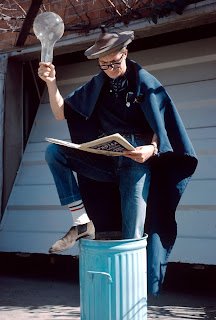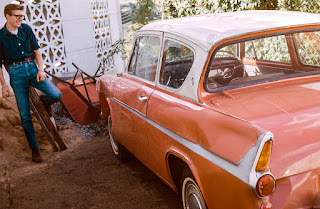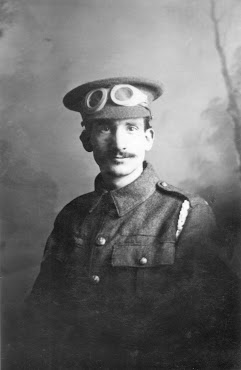In Memoriam
Richard John Lawrence Pascoe
1942 - 2022
A remembrance of Ricky Pascoe - friend, confidante, soulmate.
I first met Ricky at a holiday camp near Rustenburg in the magaliesberg mountains called Inanda, in 1959. I was sent there because my parents had gone on a trip to Italy. The following is an excerpt from my memoirs:
“On arrival, I am greeted by an affable chap with black-rimmed glasses and a winning smile. He introduces himself as Rick Pascoe. I mumble my name and he introduces me to the rest of the crowd as “Ram” and the moniker sticks. We have adjacent beds in the boys hostel (The boys sleep in one dormitory and the girls in a separate, but attached, dormitory) and discover that we have much in common.
Ricky becomes a fast friend, the brother that I never had and eventually, my best man at my wedding and godfather to my children. He is still my best friend as I write this, over half a century later.
We decide to climb to the top of the “Tiger Kloof” gorge, 150 metres high, without ropes, medical kit or water. It’s a tough climb and takes us three hours. At the top, we discover a paradise plateau where it seems no man has ever been before. There is the source of the stream that plunges over the edge into the gorge below as a 100-metre waterfall, with a pool big enough to swim in. We strip and cool off and spend the day swimming and exploring the fauna and flora of this beautiful place before climbing down again at sunset. When asked where we have been all day, we reply “To paradise!”
We walk the five K’s into Rustenburg town as a group, ten of us, to go to the cinema on a Saturday night. We see a Dean Martin & Jerry Lewis movie called Hollywood or Bust. We walk back in the moonlight, listening to the sounds of the nocturnal wildlife along the way. We tie (not too tightly) Lenny Dembofski, one of the boys who is making a real nuisance of himself, to a tree in the old abandoned cemetery that the road runs past, and leave him for the Tokolosh. At the hostel, we sit around a campfire and Ricky impersonates Dean Martin singing “Amore.” Ricky and I apple-pie the beds in the girl’s dorm. There is one girl called Lulu, who occupies Ricky’s bed in revenge and forces him to sleep on the floor. I’m sure that she was hoping he would join her, but being the gentleman he was, he didn’t. Maybe he did and I slept so soundly that I didn’t notice. “
Once back home after the holiday camp, our friendship endured and we visited one another as often as we could. We were both in our final years of high school and neither of us had our own transport so we had to use busses and trains. Ricky lived in Sunnyridge in Germiston and I lived in Rosettenville, south of Johannesburg. Ricky’s parents were the most warm-hearted people and welcomed me into their home without reservation. Ricky also had a sister, Sue, who I rarely saw. Once I graduated high school and went into the Air Force for three years, we did not see much of each other but Ricky entered the world of having to work for a living and got a job with a company called Shimwells, who were the importers of Walther firearms and Honda motorcycles. When my time in the air force was up, I also got a job at the O.K.Bazaars in Johannesburg and Ricky and I used to meet for lunch at the Wimpy bar in Eloff street. It was the beginning of my long association with all things guns and shooting. Ricky owned a genuine DWM Luger in 9mm Parabellum, made at the DWM factory in Erfurt in 1917. It was the most beautifully engineered piece I have ever seen.

In 1964 Ricky bought himself one of the new Honda motorcycles, a CB350. Now we had transport! My father was a cameraman for the African Mirror newsreel, (for those of you too young to remember pre-TV, a newsreel was a 30 minute news film which was shown in movie cinemas before the feature film, much like a TV news program today) and he occasionally allowed me to take a movie camera and cover a newsworthy event for African Mirror. Ricky would take me where we needed to go on his Honda. We also made friends with (I won’t say “joined”) the Hells Angles, who Ricky met in the Honda showroom.
For my 21st birthday, my parents gave me a car, a Ford Anglia, and Ricky presented me with a Walther PPK .380ACP pistol. The Anglia did a lot of miles between Sunnyridge and Craighall, where my parents had built a new house. One night it was raining very heavily when I had to take Ricky home. I foolishly used a shortcut called the old Rosherville road, that went between the mine dumps. I didn’t realise that the road had become a torrential river and the car was literally picked up by the water and washed off the road into a ditch, landing on it’s side.
Ricky’s door was uppermost, and he climbed up out of the door still holding a cigar in one hand.
When some people stopped to as if we were ok, he replied, cigar in hand, “Oh yes, thank you.
We do this quite often!”
Ricky married a girl called Brenda, who was the PA to the CEO of Coca-Cola SA. He rented a small flat in a building overlooking Joubert Park in central Johannesburg, called Lorna Court. The first time I visited, I realised that it was the very same flat that my paternal grandparents had lived in. Ricky bought a series one Land Rover, which he parked outside the building in Joubert street. We planned a road trip around Africa, starting at Cape Town and progressing through Namibia, Botswana, Angola, Zambia, the Rhodesias (now Zimbabwe and Zambia) Tanganyika (now Tanzania) Mozambique and back to SA via the east coast. It was to be called “Operation Nomad” and we obtained all of the necessary permits, visas and licenses. We even arranged the purchase and delivery of a new 4x4 in Windhoek, a Ford F150 because the Namibian authorities would not allow the use of a narrow track vehicle such as the Land Rover on many of the desert roads. Sadly, we never got to do the trip, due to the war in Angola and Rhodesia and Noelin’s father’s refusal to give her permission.

Ricky’s marriage to Brenda was annulled after three months.
Something just didn’t work there.
Brenda ran off with an American pilot.
Ricky was very broken up about it.
He soon found solace in Lorraine, who lived on a large property in Bedford View.
They married soon after and were very happy.
I had married Noelin, and the four of us were very good friends.
Ricky was my best man at my wedding.
It wasn’t long before we all purchased new homes in a new suburb of Kempton Park called Birch Acres.
A daughter was born to Ricky and Lorraine, Melissa.
We had Venetia, Dario, Gia and Carina.
Noelin and Lorraine became very active in the dog showing and breeding fraternity, Noelin breeding Dalmatians and Lorraine breeding Rhodesian Ridgebacks.
Ricky always had a joke to tell, or to liven up an evening. He was a walking encyclopaedia of all things firearms and ammunition. We created a business together customising and nickel plating pistols, and gained a world wide reputation for the excellence of our work. Ricky was appointed as a consultant to Armscor, the government arms manufacturer, and carried out much of the testing of vehicle armour against military small arms. For this purpose he was given a permit to own an AK47 assault rifle, which was otherwise banned from civilian ownership. He also owned a FN R1 and an American AR15.

Our interest in firearms and the shooting sports resulted in Ricky becoming the chairman and me becoming the secretary of the Combat Pistol Association. This consumed much of our free time every weekend. We eventually had over twenty clubs affiliated to the association and entered Springbok teams in two world championships, one in Johannesburg and one in Switzerland. Ricky was the team manager on both occasions and was awarded his Springbok blazer.
Lorraine’s aged parents passed on and Lorraine inherited the Bedford View property and they sold the Birch Acres house and moved in there. We moved to Cape Town and Ricky and I maintained our friendship by telephone and eventually, by eMail. Ricky and Lorraine eventually sold the Bedford View property and moved to Knysna in the Cape, where they bought a hardware and general store business. Unfortunately the business was not a success and Ricky and Lorraine separated. They divorced and Ricky needed a lot of moral support at this time, but even through the dark times, he was always a delight to talk to. Nothing ever got him down. He eventually met up with an old shooting girl friend, Mareta, who we had both taught to shoot when we ran the Germiston Combat Pistol Club. Mareta had been involved in a motorcycle accident and had one leg in a brace. She and Ricky moved in together and Mareta’s condition deteriorated until she was confined to a wheelchair. Through all of this, Ricky devoted his life to her care. He had dreams of going into the bush on camping trips which never came to pass. Mareta inherited her mother’s house in Knysna and she and Ricky lived there, devoted to each other.

Ricky had a remarkable gift - his handwriting was pure calligraphic copperplate. It was a beautiful thing to behold and he did it effortlessly and totally naturally. I was amazed when he showed me the journal of his great-great-great-great-great grandfather, Lt John Pasco(e), who was Admiral Lord Nelson's Flag Lieutenant on HMS Victory at the battle of Trafalgar. It was written in a hand identical to Ricky's. I mean Identical. This is what "The Trafalgar Roll" says about John Pasco:
Rear-Admiral J. Pasco was born in 1774. Entered service,
1784; Mid., 1790; Lieut., 1795. Lieut, of Beaulieu at reduction of St. Lucie, 1796. Lieut, of Victory at capture of
French frigate Ambuscade, 1803. Senior Lieut, and Signal Lieut,
of Victory at Trafalgar, 1805 ; but did not act as First. Arranged
with Lord Nelson the memorable signal, “ England expects that
every man will do his duty.” Was severely wounded in the right
side and arm, for which he received a grant from the Patriotic
Fund, and an Admiralty pension of /250 per annum. Was
promoted Commander, 1805. Carried a bannerol of lineage at
14 THE TRAFALGAR ROLL
Nelson’s funeral, 1806. Captain, 1811. Good Service Pension,
1842. Captain of Victory, 1847. Retired Rear-Admiral, 1847.
Medal and clasp. Died at Stonehouse, Devonport, November
1853, aged 78.
Ricky came from noble stock.
I will miss him dreadfully. Although we lived half a world apart, he was always a part of me. He was the brother that I never had, and I feel a dark hollow in my soul that used to be filled with his life, laughter and love.
Rest in peace, Amigo.











